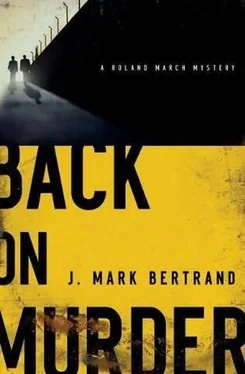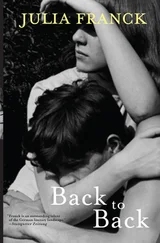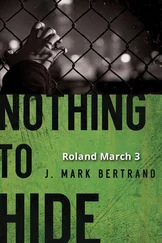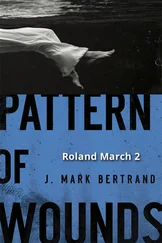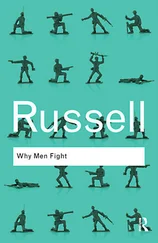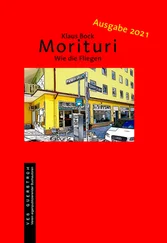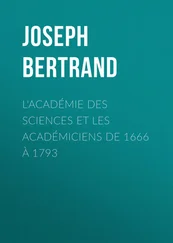But Mrs. Mayhew cocks her head toward me, like she’s just noticed something that should have been obvious all along. “You knew, isn’t that right? When you came here that first time, that thing with the Q-tip. You thought – what? That Evey was Hannah?”
“More or less.” My mouth is so dry, the words come out in a whisper. “I got it wrong.”
“Maybe we all did. For a long time now I’ve had this feeling I don’t know my daughter anymore.” Her tear ducts open, her eyes shine with damp. “And now, I can’t really explain it, but it’s like I got her back.”
At the top of the stairs, my leg throbs and I lean against the wall for a breather, grateful to have the bullet wound as an excuse so Cavallo can’t make any cracks about my being an old man. She waits patiently, chin tucked, preoccupied by our encounter with Donna Mayhew.
“Ready?”
I’m not ready, not after that. Mrs. Mayhew has something to work through, a mystery of her own, much deeper than ours. A solitary question that can never be adjudicated, any answers she might find in this life impossible to validate. I know something about that, and what it can do to a person.
So I push on with a nod. This wing of the church is new to me, a long linoleum-lined hallway with classroom doors on either side. It could pass for a high school except for the Bible verses painted on the walls and the framed portraits of robed and bearded men, heroes of the faith presented in a sentimental neo-Victorian soft focus. I glance into a couple of empty classrooms, noting folding tables and stackable chairs, the space flooded by afternoon light.
At the end of the hallway, Cavallo pushes through a set of double doors, holding one open for me. We pass into a larger classroom, where the office-building suspended ceiling has been torn out, the exposed trusses painted black. Past a sea of now-empty couches, a group of thirty or forty teenagers sits in a semicircle around a raised stage. Carter Robb is up there, a tiny book dangling from one hand, a trap set and amplifiers and a couple of guitars on stands behind him.
“Let’s wait back here,” Cavallo whispers, motioning toward one of the couches. Glancing around, I spot a table in back stacked with empty pizza boxes and two-liter bottles of Coke and Sprite. We take our seats, and a couple of kids turn to see who’s come in. Robb gives no sign of noticing us, though we’re hard to miss.
Judging from the tone of his voice, the lingering pauses between the words, the way he makes pointed eye contact with first one student then another, his talk has reached its climactic finale. Robb’s style is very different from, say, Rick Villanueva’s, making up for what it lacks in polish with an extra dose of intensity. But then he’s not coaxing ex-convicts with outstanding warrants into a state of mental paralysis; he’s telling a bunch of slouching, dough-faced teens that all God wants from them is justice, mercy, and humility. Justice must be the greatest of these, because it’s justice Robb lingers on – not only justice for ourselves, he insists, but for the strangers among us, for the outcasts.
“If God, the judge of everything, does what is right, then will he expect anything less from you? Or you?” He points his finger into the audience, then turns it on himself. “Or me? We look out for ourselves, but it’s not enough. We look out for our friends, but that isn’t enough, either. Justice for all, that’s our calling. We can talk about mercy for the undeserving – and we’re all undeserving – but here in the fallen world, living life under the sun, we have to talk about justice for the undeserving, too. And at the end of the day, it has to be more than just talk.”
As I listen, our conversation in the church van comes to mind, the conflict in his head between the safe and the good. If it’s still there, he’s not sharing it with his disciples. If he blames himself for Hannah Mayhew’s fate, or Evangeline Dyer’s, he hasn’t tempered his message as a result.
He ends suddenly, dropping his head, clenching his eyes tight in prayer. Next to me, Cavallo does the same. I shift in my chair, looking around. At the back table, a woman in an apron and baggy jeans starts taking foil off a tray of brownies, cringing at each metallic ripple.
The gravity of the moment ends as soon as the prayer does, with the teens rushing back to the table for dessert, casting a curious glance or two our way. Three or four gather around Robb, who tries to edge toward us while some more wander onstage to pack up instruments. These kids would have known Hannah. They would have known Evey Dyer. Of all people they’d have a right to be shocked by what happened to the girls, to be traumatized. If they are, I see no sign. The resiliency of youth? Maybe. Or it could be that some wounds go too deep to be casually observed. I know something about that, too.
“I’ll be with you in just a second,” Robb says, slipping past us to confer with the brownie lady.
“Hard to believe he’s the same guy from the other day.”
Cavallo shrugs. “Life goes on.”
He rejoins us, holding on to the last remnants of the stage persona until we get to the hallway, where he sighs and hunches his shoulders, taking up his burden again.
“We can talk back in my office,” he says.
“Just so you know, you were right about the photograph. The mother’s dna was a match. Which means it really was Evey Dyer in that house. The question is, how’d she get there? And what does it have to do with Hannah’s death?”
He runs his hand over his head, raising a jagged clump of hair. “It’s all I think about.”
Pausing near the stairway, he points out one of the framed pictures on the wall. Unlike the smiling ancients, this one is abstract, random primary-colored dots swirling on a white background. He walks over, telling us to look.
“Seems like nothing at first,” he says, “but if you stare long enough, you can see the face.”
Cavallo cocks her head. “It’s Jesus.”
“Yeah.” He gives an embarrassed grin. “It’s corny, I know. Not my kind of thing, believe me. But that’s how I feel all the sudden, ever since I saw that picture in your office. Like I’ve been staring at something that doesn’t make sense, and suddenly I recognize the pattern. There turns out to be a design in it all.”
She nods and we descend the stairs. It must come easily to him by now, turning everyday things into object lessons.
“So what’s the pattern here?” I ask, trying to keep the annoyance out of my voice.
“Have you talked to Murray? The guy I introduced you to the other day?”
“The resident dreamer?”
He pushes through the ground floor doorway, taking us back to the office wing. “I guess he’s a little corny, too, but a great guy. Not very many people would leave their high-powered corporate jobs to go to seminary and then do the kind of mission work he does.”
“So why should we be talking to him?”
“When I took the youth group there that first time, Hannah and Evey were really good about going out into the community and talking to people, inviting them to the center, that kind of thing. Hannah was being altruistic, but unfortunately Evey had other ideas.” He reaches his office door, then pauses. “No, I shouldn’t say that. It’s not fair. I don’t know what was in her mind, but afterward I found out she’d met a boy. The other kids were talking about it. After that week, she saw a lot of him. I didn’t worry too much – girls that age want boyfriends, right? But then Murray told me this guy was older, and maybe even a little bit dangerous.”
“When you’re sixteen, that’s the appeal,” Cavallo says.
In the office, Robb perches on his desk, motioning us to the couch. I gaze up at the sagging bookcases all around, hoping they don’t choose this moment to collapse.
Читать дальше
